As a BetterHelp affiliate, we receive compensation from BetterHelp if you purchase products or services through the links provided
Narcissism is often characterized by an inflated sense of self-importance, a deep need for excessive attention and admiration, and a lack of empathy for others. But behind this facade of supreme confidence lies a fragile self-esteem vulnerable to criticism. You might wonder whether individuals with narcissistic tendencies are also delusional. In a psychological sense, delusion refers to a firm belief in something untrue despite evidence to the contrary.
Within the realm of narcissism, the line between solid self-confidence and delusion can sometimes appear blurred. Although not all narcissistic individuals experience delusions, their perception can be markedly distorted. For example, they may have a grandiose belief in their abilities or importance, which reality cannot substantiate. This is where the question arises: are such self-deceptions a deliberate choice or a compulsive delusion? It’s a complex issue, given the nuances of self-perception and mental health.
Key Takeaways
- Narcissism encompasses a high need for admiration and fragile self-esteem.
- Delusional thoughts may occur in narcissistic individuals, confused with extreme confidence.
- The differentiation between strong self-belief and delusion in narcissism is complex and multi-faceted.
Defining Narcissism and Delusion
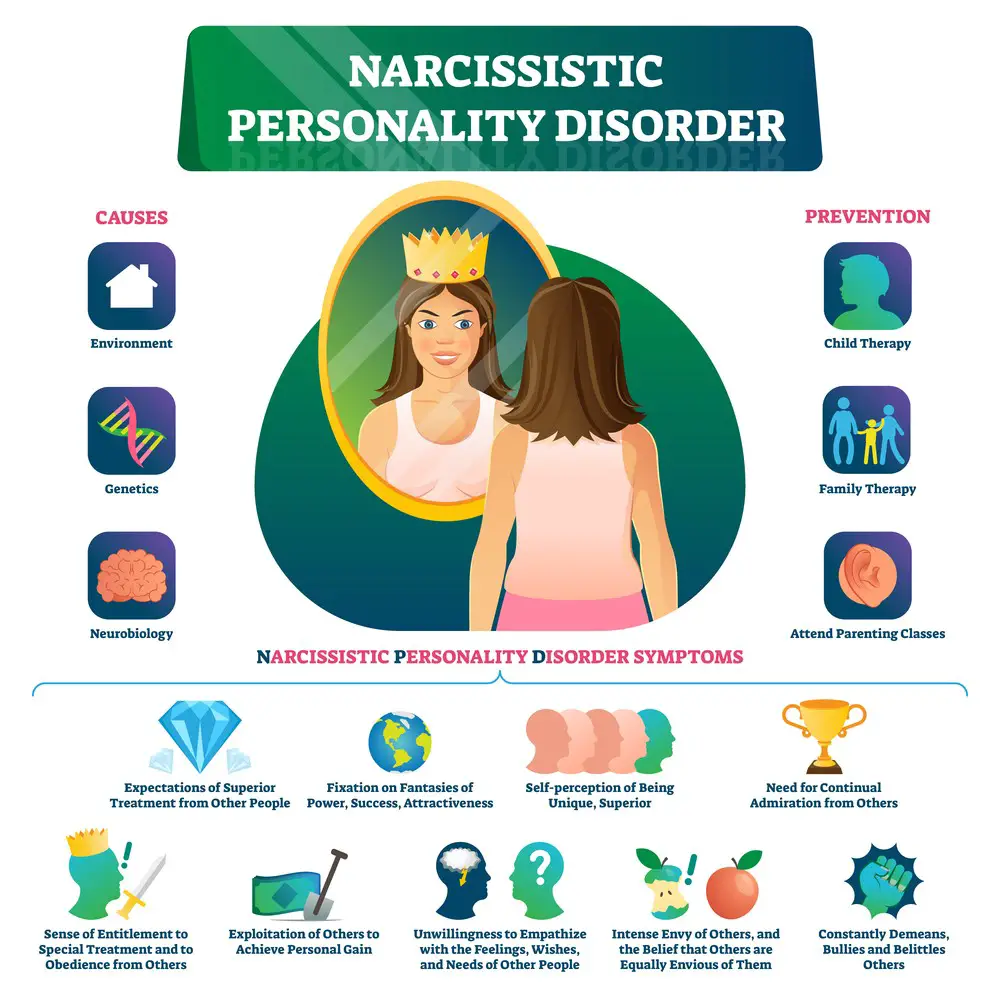 Before diving into the specifics, you need to understand that narcissism involves a pattern of self-centered, arrogant behavior and a lack of empathy for others. In contrast, delusions are firmly held beliefs contradictory to reality despite evidence to the contrary.
Before diving into the specifics, you need to understand that narcissism involves a pattern of self-centered, arrogant behavior and a lack of empathy for others. In contrast, delusions are firmly held beliefs contradictory to reality despite evidence to the contrary.
Understanding Narcissism
Narcissism, at its core, is a psychological condition characterized by an inflated sense of one’s importance and a deep need for excessive attention and admiration, coupled with troubled relationships. These are a few signs you might encounter:
- Grandiosity: Feeling more significant or superior to others.
- Fantasies: Preoccupying thoughts of power, success, or attractiveness.
- Entitlement: Expecting special treatment and unquestioning compliance with expectations.
Narcissists often struggle to recognize the feelings and needs of other people, which can lead to strained relationships, both personally and professionally.
Key Takeaway: Recognize that narcissism can manifest as a pervasive pattern of grandiosity, a need for admiration, and a lack of empathy.
The Nature of Delusion
Delusion is a fixed belief not amenable to change in light of conflicting evidence. It’s a central feature of psychopathology, and particularly, delusional disorder. Understanding delusions involves recognizing key elements:
- Certainty: Held with absolute conviction.
- Incorrigibility: Not changeable by compelling counterarguments or proof to the contrary.
- Impossibility: Content that is either untrue or not likely true.
Delusional disorder entails explicitly the presence of one or more delusions for a month or longer without the schizophrenia spectrum diagnosis. This condition exhibits a disconnection from reality, which affects how you perceive and interact with the world.
Key Takeaway: Awareness of delusions is crucial as they are unshakable beliefs not aligned with reality and are central to delusional disorder.
Diagnosis of Narcissistic Personality Disorder
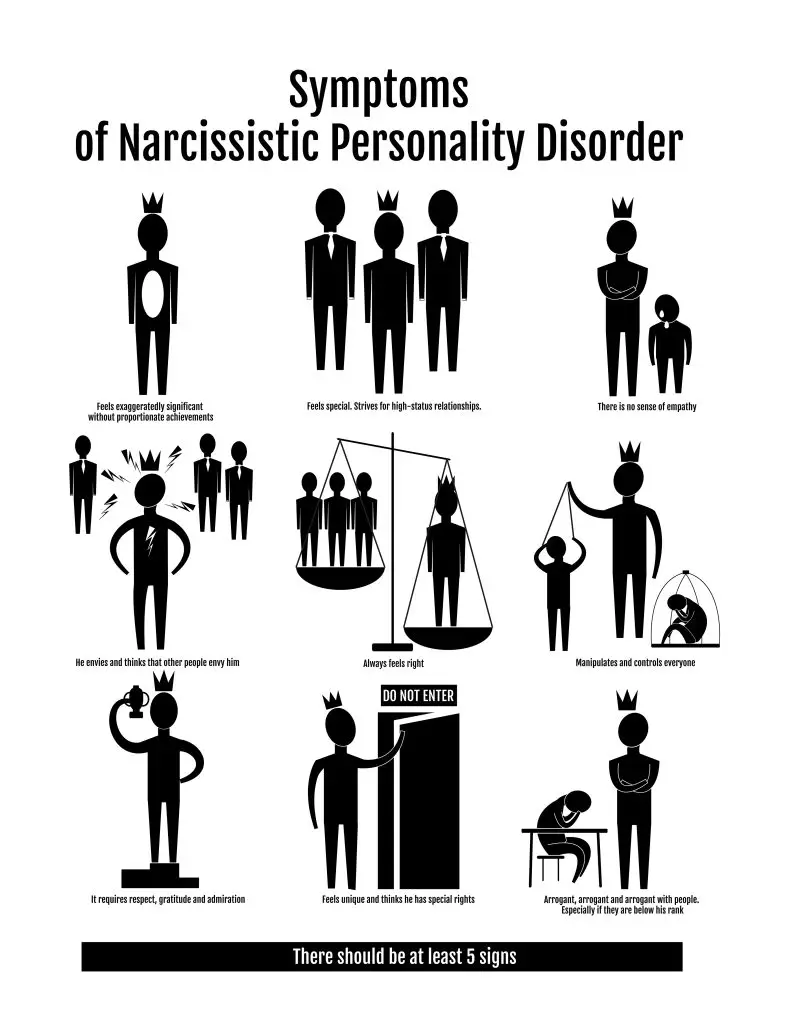 Before diving into the diagnosis of Narcissistic Personality Disorder (NPD), it’s essential to understand that this condition involves a pattern of self-centered, arrogant thinking and behavior, a lack of empathy and consideration for other people, and an excessive need for admiration. Now, let’s break down what criteria therapists use and how NPD is differentiated from delusional disorders.
Before diving into the diagnosis of Narcissistic Personality Disorder (NPD), it’s essential to understand that this condition involves a pattern of self-centered, arrogant thinking and behavior, a lack of empathy and consideration for other people, and an excessive need for admiration. Now, let’s break down what criteria therapists use and how NPD is differentiated from delusional disorders.
Criteria for NPD
According to the Diagnostic and Statistical Manual of Mental Disorders (DSM-5), to diagnose NPD, a person must exhibit five or more of the following characteristics:
- A grandiose sense of self-importance
- Preoccupations with fantasies of unlimited success, power, brilliance, beauty, or ideal love
- A belief that they are special and unique and can only be understood by or associated with other special or high-status people
- A need for excessive admiration
- A sense of entitlement or unreasonable expectations of especially favorable treatment
- Interpersonally exploitative behavior
- Lack of empathy
- Envy of others or a belief that others are envious of them
- Arrogant and haughty behaviors or attitudes
As your therapist might tell you, diagnosis is not about ticking boxes but understanding the pattern of behavior over time.
NPD vs Delusional Disorders
It’s essential to differentiate NPD from delusional disorders. While NPD involves a persistent manner of grandiosity, seeking admiration, and empathy deficit, delusional disorders encompass a range of psychotic disorders where individuals may have non-bizarre delusions about situations that could happen in real life, such as being followed or deceived.
- NPD: A stable sense of self-importance and attention-seeking, rooted in personality, without necessarily losing touch with reality.
- Delusional Disorders: Involves actual delusions that involve situations that seem realistic but are exaggerated and not based on actual events.
Recognizing the distinction is beneficial for appropriate treatment approaches.
Key Takeaway: Accurate diagnosis of NPD is based on a clear set of criteria focusing on persistent patterns of grandiosity, need for admiration, and lack of empathy, distinct from delusional disorders involving more discrete and potentially realistic but exaggerated beliefs that are not present in NPD.
Delusional Thinking in Narcissism
In understanding narcissism, you’ll find that delusional thinking, especially about one’s grandiosity, plays a significant role.
Grandiosity and Delusions of Grandeur
 Narcissists often believe they are superior to others, a concept known as grandiosity. This isn’t just about feeling confident; it’s a firmly held conviction that one is exceptionally important or talented—even when evidence contradicts this belief.
Narcissists often believe they are superior to others, a concept known as grandiosity. This isn’t just about feeling confident; it’s a firmly held conviction that one is exceptionally important or talented—even when evidence contradicts this belief.
- Sense of Superiority: You may notice an individual exhibiting an exaggerated sense of self-importance, thinking they’re above others regardless of reality.
- Unrealistic Fantasies: Dreams of limitless power, wealth, or success detached from actual abilities or achievements can signify delusions of grandeur.
Key Takeaway: Distinguishing these traits in others helps you understand and interact with them more effectively.
Distinguishing Between Confidence and Delusion
It’s crucial to differentiate between healthy self-confidence and delusional thinking.
- Healthy Confidence: This is reinforced by real-life achievements and is flexible enough to account for mistakes and failures.
- Delusional Beliefs: Are rigid and persist even when confronted with contrary evidence.
Key Takeaway: Recognizing the boundary between confidence and delusion empowers you to maintain realistic expectations in your interactions.
The Role of Empathy in Narcissistic Behavior
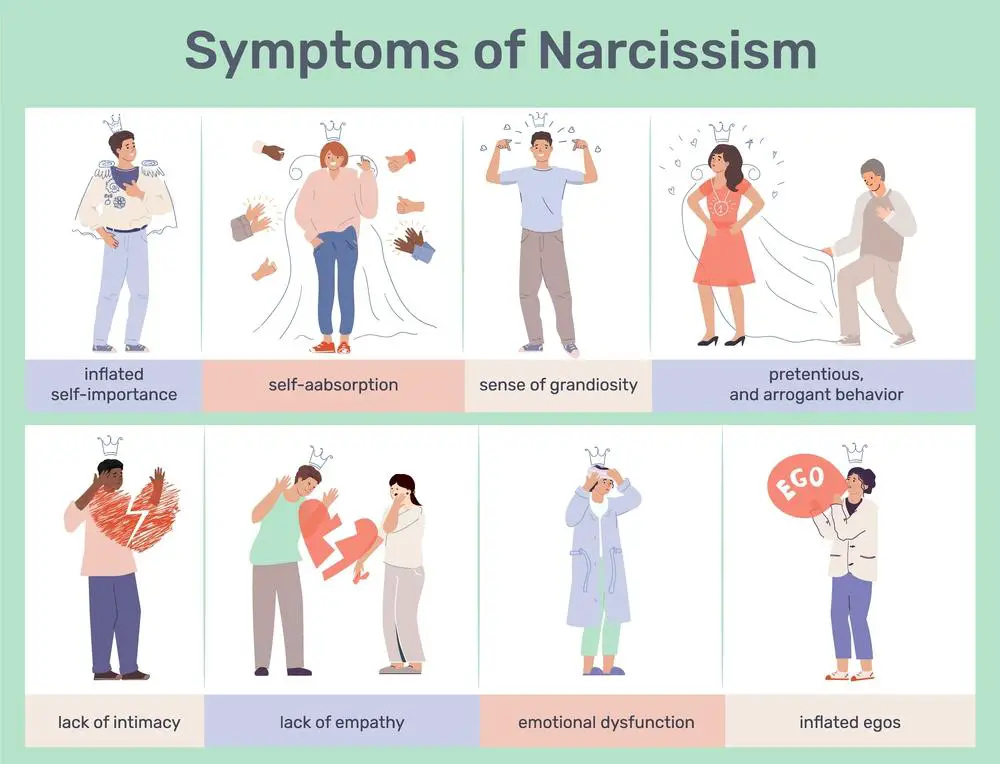 Understanding how empathy, or the lack thereof, plays a role in narcissistic behavior is essential. It influences how individuals with narcissism interact with others and perceive their importance.
Understanding how empathy, or the lack thereof, plays a role in narcissistic behavior is essential. It influences how individuals with narcissism interact with others and perceive their importance.
Empathy Deficits
Narcissistic individuals often display significant deficits in empathy, meaning they have a limited ability to recognize and react emotionally to the feelings and needs of others. This deficit can present as:
- Cognitive empathy: Understand that others have different feelings and thoughts but do not share or respond to those feelings appropriately.
- Affective empathy: An impaired ability to physically feel the emotions of others, often leading to responses that may appear insensitive or self-centered.
Key Takeaway: If you’re having trouble understanding or sharing another person’s emotions, it could hint at a deeper issue related to empathy, which is a key component in how relationships are navigated.
Impact on Relationships
The deficiency in empathy characteristic of narcissistic behavior can significantly impact relationships. This impact manifests as:
- Lack of emotional support: You might find that emotional needs are not acknowledged or met.
- Conflict: Misunderstandings and conflicts can frequently arise from the narcissistic individual’s self-centered perspective.
- Manipulative behaviors: To achieve their ends, a person with narcissistic tendencies might use knowledge of others’ feelings without genuine concern for their wellbeing.
Key Takeaway: If your relationships are strained or you notice a pattern of manipulation and conflict, consider how empathy—or its absence—may influence these dynamics.
The Interplay Between Self-Esteem and Narcissism
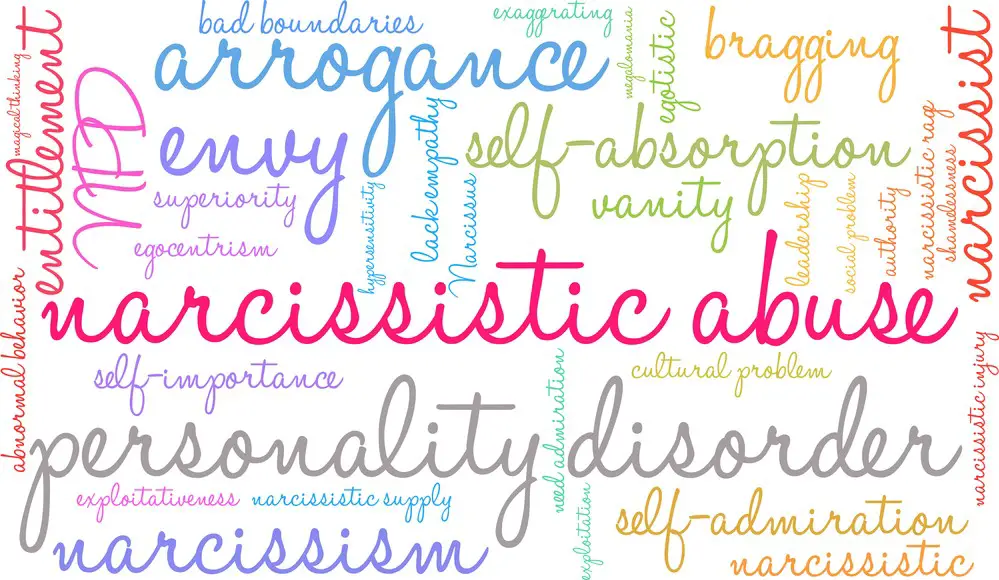 Self-esteem and narcissism intricately influence each other, affecting individuals profoundly. Let’s unpack how self-worth ties into vulnerability and mistaken superiority.
Self-esteem and narcissism intricately influence each other, affecting individuals profoundly. Let’s unpack how self-worth ties into vulnerability and mistaken superiority.
Self-Esteem and Vulnerability
Your self-esteem acts as your emotional backbone. It’s the personal perception of your worth. People with healthy self-esteem tend to be resilient and confident without being arrogant. However, issues arise when there’s a mismatch between self-perception and reality.
- Insecurities: When you have low self-esteem, you might be more prone to feeling invisible or insignificant. This inner void can lead some individuals to develop narcissistic traits as a defense mechanism.
- Narcissistic Response: Narcissists often mask their insecurities by projecting an image of confidence and greatness. They might rely on external validation to maintain their fragile self-esteem.
Key takeaway: Your self-esteem can become a shield; when it’s low, narcissistic behavior might compensate.
False Sense of Superiority
At times, individuals foster an inflated sense of self-importance, which can be a tell-tale sign of narcissism. This isn’t merely high confidence but a grandiose self-image that often stretches far from the truth.
- Grandiosity: You may encounter a person with a bloated self-concept who believes they are “above” others. This isn’t just having a good day; it’s seeing oneself in a magnified, often unrealistic light.
- Feedback Loop: The narcissistic trait of feeling superior can lead to a disconnect with one’s true self. Actual abilities and achievements may not line up with one’s self-assessment, creating a loop of needing more praise to uphold the grandiose self-image.
Key takeaway: A narcissist’s inflated self-view is like a house of cards—impressive from afar but unstable up close.
Understanding Narcissistic Manipulation
Narcissistic manipulation can be complex and deeply unsettling. It often involves a pattern of psychological strategies used by individuals with narcissistic tendencies to maintain control and power over others.
Gaslighting and Deception
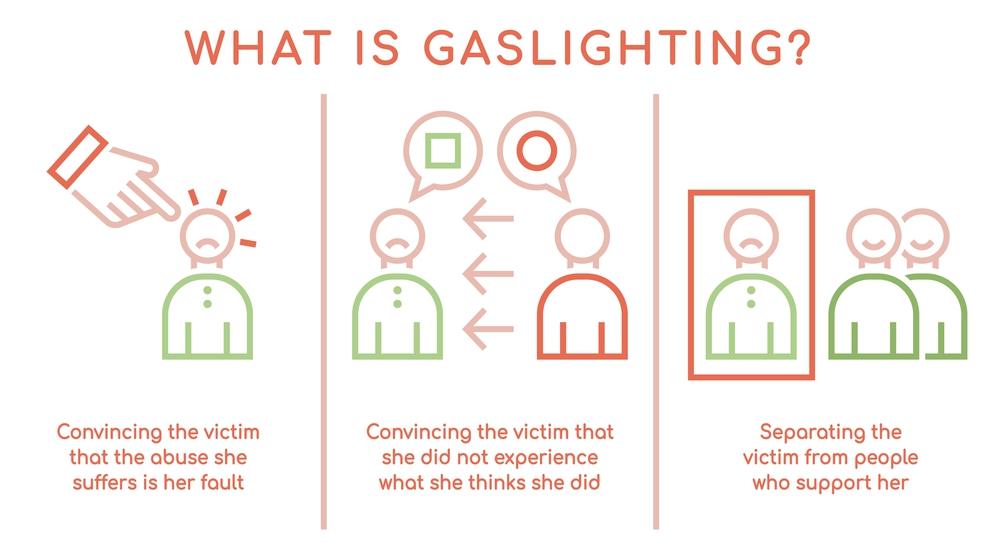 Gaslighting is a cunning tactic where you might begin to doubt your memory, perception, or sanity due to the manipulator’s insistence that their version of events is correct. This manipulation technique can be employed through:
Gaslighting is a cunning tactic where you might begin to doubt your memory, perception, or sanity due to the manipulator’s insistence that their version of events is correct. This manipulation technique can be employed through:
- Denial of Facts: Even when faced with concrete evidence, the narcissist will deny reality, persuading you to question your sanity.
- Contradictory Statements: Narcissists often tell lies and then deny having ever said them, leaving you confused and off-balance.
Key Takeaway: Trust your instincts and document interactions to counter the falsehoods.
Victimhood and Blame-Shifting
Narcissists are skilled at playing the victim and often flip the script to make it appear you’re the aggressor. Here’s how they employ this tactic:
- Shift Blame: Anytime something goes wrong, they might blame you, even for their actions or failures.
- Elude Accountability: If held accountable, they’ll deflect and project, attributing their negative traits to you instead.
Victims of these manipulative strategies are frequently subjected to a smear campaign, where the narcissist spreads rumors and falsehoods to undermine the victim’s credibility.
Key Takeaway: Recognize the pattern of blame-shifting; reinforcing your perception of reality helps maintain your sense of self.
Narcissistic Relationships and Their Dynamics
 When you’re in a relationship with a narcissistic partner, you might feel like you’re on an emotional rollercoaster. The dynamics are complex and can be challenging to navigate.
When you’re in a relationship with a narcissistic partner, you might feel like you’re on an emotional rollercoaster. The dynamics are complex and can be challenging to navigate.
The Narcissistic Partner
A narcissistic partner often seems charming at first. You’ll notice they have an insatiable need for admiration and a lack of empathy for others. Here’s what you might see:
- Self-centered Behavior: They’ll entirely make the relationship about their needs and interests.
- Manipulation: To maintain control, your partner may use tactics like guilt or flattery.
- Lack of Responsibility: They won’t take accountability for their actions, often blaming you instead.
If you decide to confront a narcissistic partner, be prepared for resistance. They may dismiss your feelings or turn the situation against you, claiming you are the one with the problem.
Coping Mechanisms for Victims
Facing a narcissistic partner is tough, but you have options to cope:
- Establish Boundaries: Be clear about your limits and stick to them.
- Seek Support: Connect with friends, family, or support groups who understand what you’re going through.
- Self-Care: Focus on your own needs and well-being. Remember, your mental health is vital.
If you feel cornered and unable to cope, it might be time to reconsider the relationship’s value to your life.
Key Takeaway: While dealing with a narcissistic partner can be draining, setting boundaries and engaging in self-care are crucial steps to protect your well-being.
Cultural and Social Influences on Narcissism
 In exploring how our surroundings shape self-centered behavior, it’s essential to understand how social media and celebrity culture contribute to narcissism.
In exploring how our surroundings shape self-centered behavior, it’s essential to understand how social media and celebrity culture contribute to narcissism.
Social Media and Narcissism
Social media platforms can be a fertile ground for narcissistic behavior. The ability to craft an idealized image of oneself to a broad audience promotes self-centeredness. Here are the specifics:
- Following Trends: Obsession with likes, followers, and online approval can encourage a vulnerability to narcissistic traits.
- Reality vs. Online Persona: There’s often a disconnect between a person’s true self and online image, which can distort self-perception and inflate self-importance.
Key Takeaway: Your social media engagement should be mindful, focusing on genuine interactions rather than chasing affirmation.
Celebrity and Performance Culture
Celebrity culture emphasizes the importance of standing out and being recognized:
- Spotlight on Success: Celebrities are often celebrated for their unique talents and lavish lifestyles, which can set unrealistic standards for success and self-worth.
- Performance Over Substance: Attention and admiration are currency in the performing arts, potentially prompting performer-centric mindsets.
Key Takeaway: Appreciate the arts and celebrate success, but remain grounded in the reality that celebrity status doesn’t equate to personal value.
Treating Narcissistic Delusions
When you’re dealing with narcissistic delusions, remember that effective treatment typically hinges on professional intervention and the individual’s commitment to self-improvement.
Therapeutic Approaches
Professional guidance through therapy is a vital step in addressing narcissistic delusions. A therapist or counselor can create a supportive atmosphere that nurtures change. Key therapeutic strategies include:
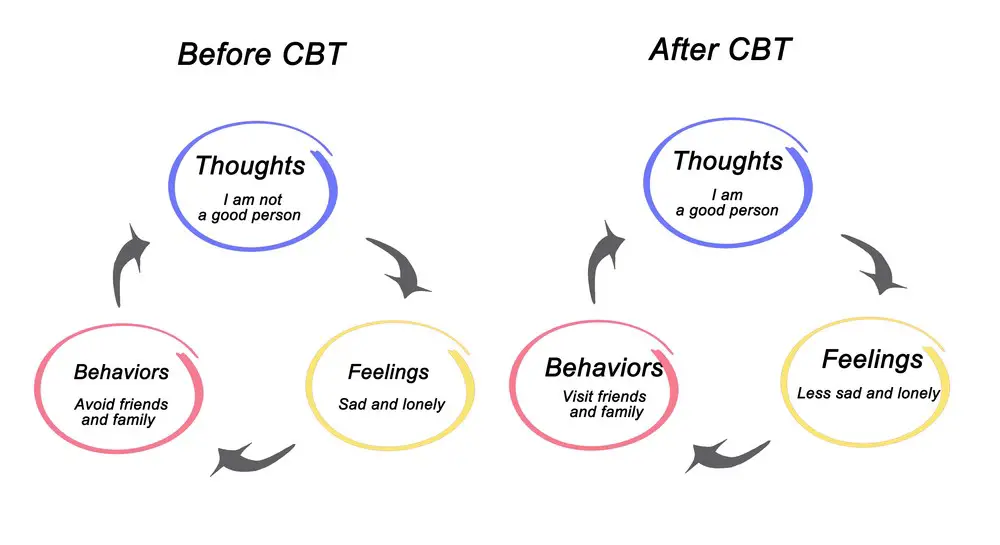
- Cognitive Behavioral Therapy (CBT): This approach helps you identify and challenge distorted beliefs, gradually fostering healthier thinking patterns.
- Psychodynamic Therapy: By exploring past experiences, you can begin to understand the root causes of your defense mechanisms and work on resolving them.
Participation in group therapy can also be beneficial, providing feedback and insights from peers experiencing similar issues.
Long-Term Management Strategies
For sustainable improvements, long-term strategies are essential. These can include:
- Ongoing Counseling: Continuity with a counselor can reinforce learnings from therapy and help maintain progress.
- Self-Awareness Practices: Mindfulness and reflection can help you recognize and adjust maladaptive behaviors.
Establish routines encouraging empathy and connection with others, as these experiences can counter self-centric thought patterns. Attending self-help groups dedicated to narcissistic behavior can offer additional support.
Key Takeaway: By seeking professional help and dedicating yourself to the therapeutic process and continuous self-reflection, you can work toward overcoming narcissistic delusions and improving relationships.
Prevention and Education on Narcissism
Narcissism can profoundly impact relationships and communities, but with the right preventive measures and educational programs, it’s possible to mitigate its effects. Let’s explore how awareness campaigns and support systems can be critical.
Awareness Campaigns
You’ve probably heard the term “narcissist,” but understanding it entirely is vital to spot early warning signs. Awareness campaigns are first in line when it comes to preventing narcissistic behavior patterns from taking root.
- Public Messages: Use social media, videos, and infographics to share clear facts about narcissism.
- School Programs: Teach empathy and emotional intelligence in schools to counteract self-centric behaviors.
- Healthcare Professionals Training: Equip doctors and therapists with resources to identify and help those showing narcissistic traits.
By keeping the dialogue about narcissism open and informative, you create a compassionate community ready to support those who need it.
Key Takeaway: Awareness campaigns boost recognition of narcissistic behavior, fostering an informed community.
Support Systems
No man is an island, and this is especially true when dealing with narcissism. Building robust support systems is crucial for individuals who struggle with narcissistic tendencies or for those in a relationship with a narcissist.
- Peer Groups: Encourage joining groups where experiences can be shared safely and without judgment.
- Family Counseling: Offer sessions where families can learn about healthy boundaries and communication.
- Online Forums: Provide safe spaces online for sharing and advice, ensuring anonymity and support.
Everyone benefits from a network of support—those experiencing narcissism-related challenges and the people around them. It’s about learning, understanding, and growing together.
Key Takeaway: Strong support networks nurture healing and learning for all involved in the dynamics of narcissism.
Frequently Asked Questions
Navigating the complex characteristics of narcissistic delusional disorder can be challenging. These FAQs aim to shed light on key aspects of the condition to help you better understand and manage interactions with individuals who may exhibit these traits.
What psychological traits are associated with narcissistic delusional disorder?
Narcissistic delusional disorder is often characterized by an inflated sense of self-importance, a deep need for admiration, and a lack of empathy. Individuals may believe they have unique talents or are destined for greatness, which can lead to a sense of entitlement and exploitative interactions. Key takeaway: Recognizing these traits can be the first step to understanding how to interact with someone with this condition.
How can one effectively cope with someone who has delusional narcissism?
When dealing with delusional narcissism, it’s vital to set clear boundaries for your mental well-being. Ensure you have a support network and consider seeking guidance from a mental health professional. Strategies might include:
- Maintaining a calm demeanor during interactions.
- Not taking their behavior personally since the disorder often drives their actions.
Remember, you’re not alone in this; handling it carefully is key.
Can you share some insights on how grandiose delusions manifest in narcissistic individuals?
Grandiose delusions in narcissistic individuals often manifest as overestimations of one’s abilities and importance. They may talk about grand plans or achievements that seem unrealistic or exaggerated. To witness:
- Exaggerated stories about successes.
- Claims of association with high-status individuals or groups.
These tendencies can be indicative of the grandiosity seen in narcissistic delusions.
What are the common behaviors of a narcissist when they lose control?
A loss of control can lead a narcissist to display reactive behaviors such as:
- Lashing out with anger or contempt.
- Attempting to manipulate the situation to restore their sense of superiority.
Understanding these reactions can help you navigate challenging moments with composure. The takeaway? Keep your cool and focus on your response.
What phrases or behaviors tend to have a significant impact on a narcissist’s self-perception?
Narcissists are often sensitive to criticism and may react strongly to phrases that suggest failure or inadequacy. For instance:
- “I expected better from you.”
- Appear disinterested or unconvinced by their claims of grandeur.
This sensitivity can dramatically affect a narcissist’s self-perception, sometimes resulting in defensive or aggressive behavior.
How can one identify narcissistic traits through simple observation or questioning?
To identify narcissistic traits, pay attention to patterns like:
- Excessive self-focus during conversations.
- Seeking frequent validation or admiration.
Asking about their feelings towards criticism or failure may also provide insights. It’s about observation and asking the right questions to unveil the underlying patterns.
 Blog Post Bio: Navigating Through the Storm – My Journey with Narcissism and Mental Health
Blog Post Bio: Navigating Through the Storm – My Journey with Narcissism and Mental Health
Jacob Maslow: A Resilient Father and Mental Health Advocate
Welcome to my world, one shaped by the turbulent winds of narcissism and the relentless pursuit of mental well-being. I’m Jacob Maslow, and here’s a glimpse into my life’s journey:
- Post-Divorce Harmony: I fostered a loving and close relationship with my children for nearly a decade after my divorce. We thrived in a unique setup of two households, ensuring they received double the love, not half.
- A Sudden Shift: Everything changed a few months ago. My ex-wife, grappling with severe narcissism, abruptly ceased cooperating with our court-ordered custody arrangements. This sudden turn shattered our carefully maintained balance.
- The Battle for Reconnection: We initiated reunification therapy, a beacon of hope. Yet, as progress was made, my ex-wife disengaged, halting the process just as our kids began to overcome alienation.
- Personal Mental Health Journey: Navigating these turbulent waters, I rely on Lexapro and the support of BetterHelp. As a veteran of therapy, I understand the importance of mental health management.
- A Narcissist’s Path: My ex-wife’s actions follow a pattern typical of narcissism. Her pursuit of community leaders, followed by smear campaigns, echoes the destructive traits of this condition. As time passes, her narcissistic tendencies intensify, further complicating our situation.
- A Father’s Struggle: Despite years of a solid post-separation bond, I now face an agonizing reality. My ex-wife’s refusal to adhere to custody orders has severed my connection with my children. This ongoing court battle tests my resilience daily.
- Finding Solace: I take long walks to find clarity and peace, a simple yet powerful way to clear my mind.
- Sharing Knowledge and Support: Through my writings on mental health and narcissism, I aim to assist others facing similar challenges. My legal site extends a helping hand to those struggling with non-compliant spouses and the complexities of co-parenting.
- The Pain of Separation: Losing a close bond with my children has been a profound blow to my mental health. Yet, I remain committed to fighting this battle for them and my well-being.
Remember, mental health challenges can be overcome. I stand as a testament to resilience, and through my experiences, I hope to guide and support others on their journey to healing and understanding.

- How Having Cybersecurity Protection Helps You Relax - April 25, 2025
- 8 Reasons Why Spending Time Outside Calms You Down - April 25, 2025
- 5 Helpful Ideas for Managing Stress During a Plumbing Emergency - April 24, 2025
This site contains affiliate links to products. We will receive a commission for purchases made through these links.


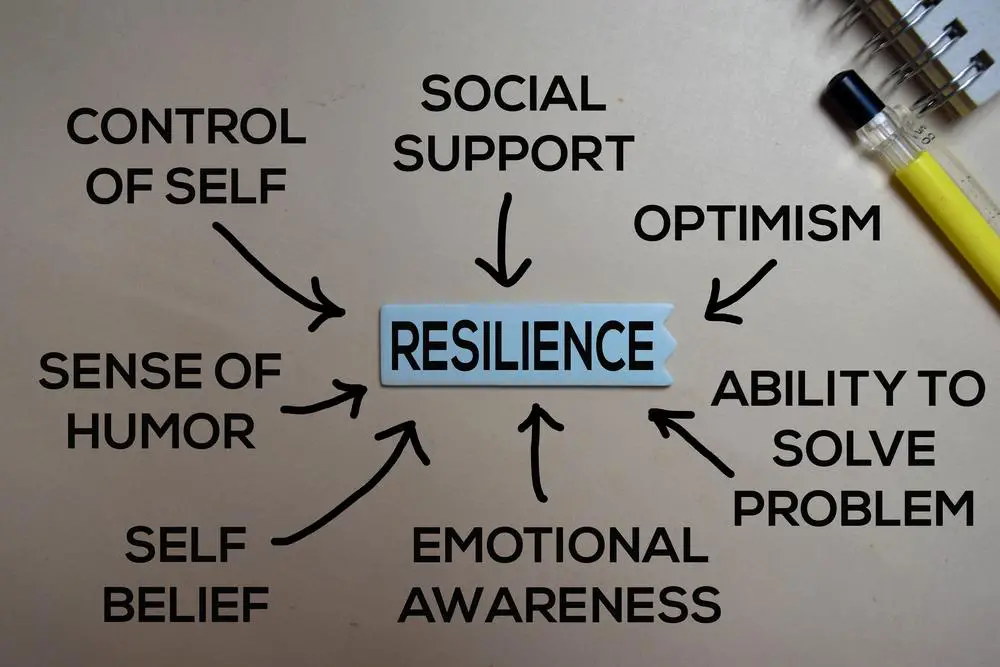 Blog Post Bio: Navigating Through the Storm – My Journey with Narcissism and Mental Health
Blog Post Bio: Navigating Through the Storm – My Journey with Narcissism and Mental Health
